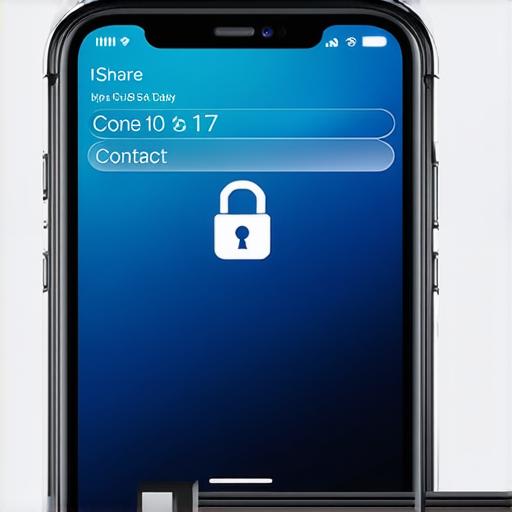In today’s digital age, privacy and security have become increasingly important concerns. With the widespread use of mobile devices such as smartphones, people are now more connected than ever before. However, with this increased connectivity comes an increased risk of data breaches and identity theft. One way that apps can gain access to personal information is through contact sharing. Contact sharing allows apps to access a user’s contact list and use it for various purposes such as marketing, advertising, or even theft.
Why Disable Contact Sharing?
There are several reasons why you may want to disable contact sharing on your iPhone. Firstly, if you are concerned about the security of your contacts, disabling this feature can help protect them from potential threats. For example, if an app has access to your contacts, it could potentially be used by hackers to steal sensitive information such as names, phone numbers, and email addresses. Secondly, disabling contact sharing can also help maintain privacy. If you do not want other apps to have access to your contacts, you can disable this feature and keep them private. This can be especially important if you use your iPhone for business purposes and do not want competitors to have access to your client list. Finally, disabling contact sharing can also help prevent accidental sharing of personal information. If you accidentally share your contacts with the wrong person, it could lead to embarrassing or even dangerous situations.
How to Disable Contact Sharing on iPhone with iOS 17
Disabling contact sharing on iPhone with iOS 17 is a simple process. Here’s how to do it:
- Open the Settings app on your iPhone.
- Scroll down and tap on Privacy.
- Tap on Contacts.
- Turn off the switch next to “Contacts.”
That’s it! You have successfully disabled contact sharing on your iPhone with iOS 17. If you ever need to enable this feature again, simply turn on the switch next to “Contacts.”

Comparing Disabling Contact Sharing vs. Not Sharing at All
While disabling contact sharing can help protect your privacy and prevent accidental sharing of personal information, it is not always the best solution. In some cases, you may want to share your contacts with others for legitimate purposes such as marketing or advertising. If you decide not to share your contacts at all, there are other ways to protect their privacy. For example, you can encrypt your contacts and keep them private on your phone. You can also use a password-protected app to store your contacts and restrict access to them.
Real-Life Examples of Contact Sharing Gone Wrong
There are several real-life examples of contact sharing gone wrong that highlight the importance of disabling this feature. One such example is the case of a group of employees at a law firm who accidentally shared their contacts with a competitor. This led to a major PR crisis for the law firm and caused significant damage to its reputation. Another example is the case of a social media influencer who shared her contact list with hackers, who then used it to steal sensitive information from other influencers. These examples underscore the potential risks associated with disabling contact sharing and highlight the importance of being careful when sharing personal information.
FAQs about Disabling Contact Sharing on iPhone with iOS 17
Here are some frequently asked questions about disabling contact sharing on iPhone with iOS 17:
- Is it possible to disable contact sharing on iPhone with iOS 17 without affecting my contacts?
- Can I enable contact sharing again after disabling it?
- Can I disable contact sharing on iPhone with iOS 17 without affecting my contacts’ data?
- Do I have to disable contact sharing if I want to use certain apps?
- How do I know which apps have access to my contacts?
Yes, you can disable contact sharing on iPhone with iOS 17 without affecting your contacts. This will simply prevent other apps from accessing your contacts.
Yes, it is possible to enable contact sharing again after disabling it. Simply go back to the Privacy settings and turn on the switch next to “Contacts.”
No, disabling contact sharing on iPhone with iOS 17 will also prevent other apps from accessing your contacts’ data. This means that you will need to manually transfer any important data to a separate app or cloud service.
No, not all apps require permission to access your contacts. However, it is still generally a good idea to disable contact sharing to keep your personal information safe and secure.
To see which apps have access to your contacts, go to the Privacy settings on your iPhone and tap on Contacts. From there, you can see which apps have permission to access your contacts and revoke this permission if necessary.
In conclusion, disabling contact sharing on iPhone with iOS 17 can help protect your privacy and prevent accidental sharing of personal information. By doing so, you can keep your contacts safe and secure, and avoid any potential risks or damages that may arise from contact sharing gone wrong.
